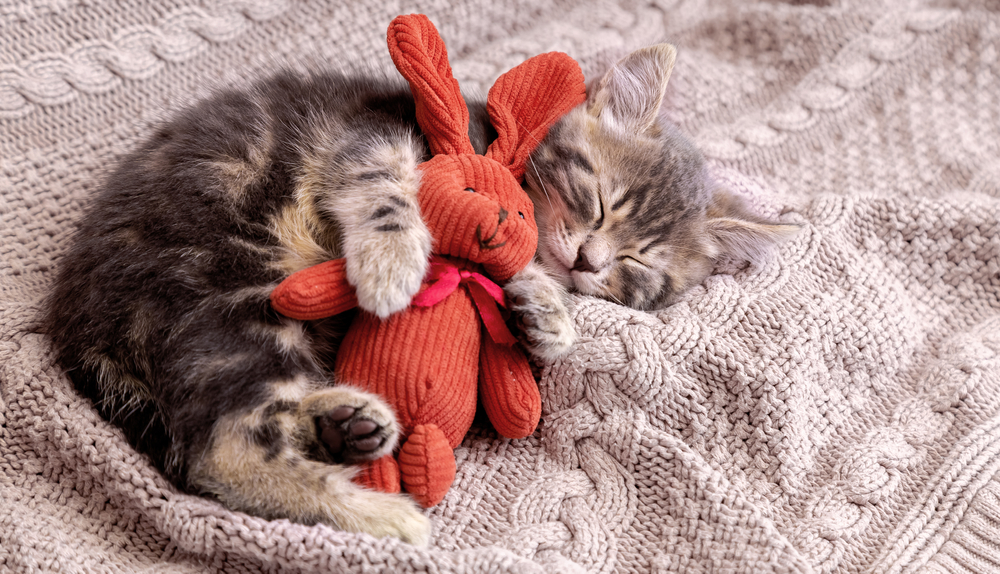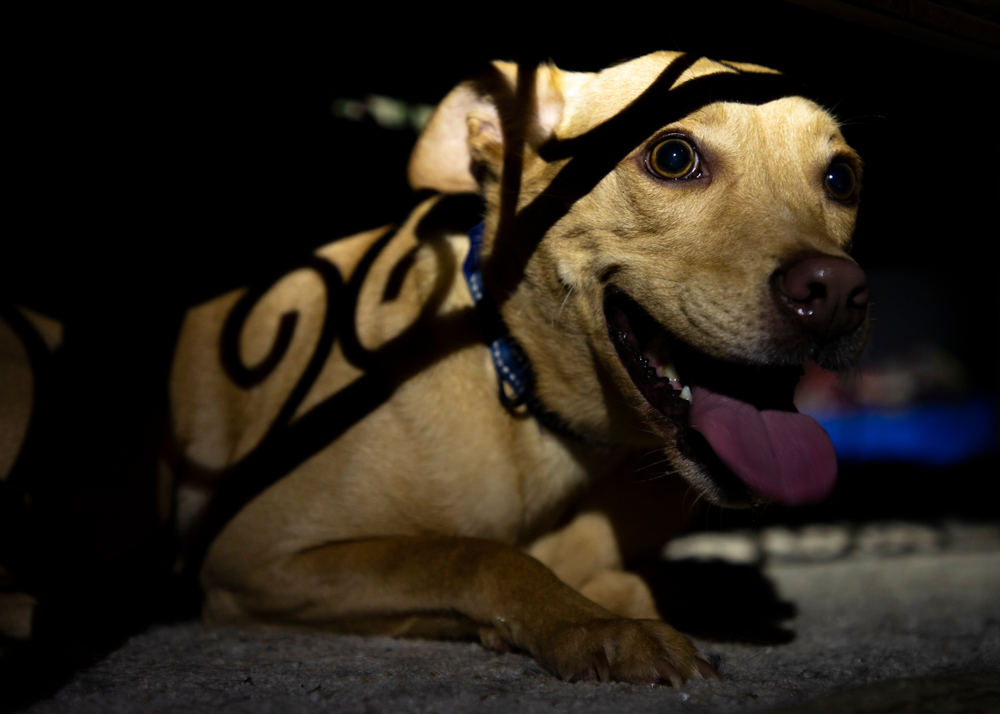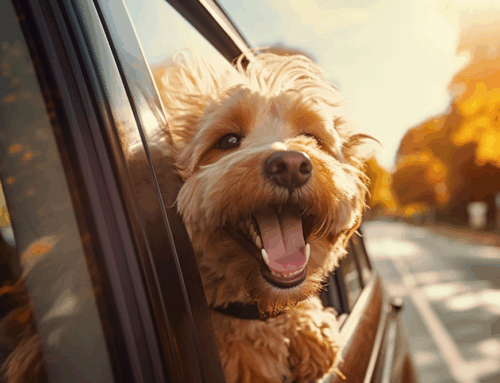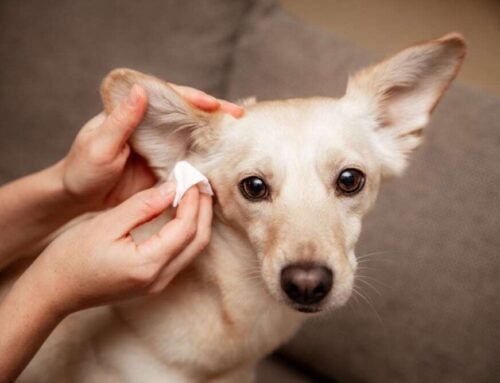Many pet owners have observed their four-legged companions reacting to sounds or sights that are not obvious. While it may seem as if they’re seeing a ghost, it’s more likely your pet has heard a far-off noise, not audible to humans. In fact, dogs can hear more than twice as many frequencies as humans, and they can hear sounds four times farther away. Cats also can detect much higher frequencies than a human. Summer celebrations and July Fourth are quickly approaching, and many pet owners dread this time of year because of their pets’ negative reaction to fireworks noise. Unfortunately, Independence Day is also the busiest day for animal shelters, because of the large number of pets who go missing when they run away from loud fireworks. Our Animal Medical Hospital of Naples team wants to ensure your furry companions don’t become a July Fourth missing pet statistic with these four safety tips.
#1: Learn to recognize noise aversion signs in your pet
Pets with noise aversion have a fearful or anxious response to a specific sound, and fireworks are a common culprit. Additionally, pets with noise aversion are more likely to suffer from other fear disorders, such as separation anxiety. Noise aversion is more common in dogs, although cats may have an anxiety response to certain sounds. Noise aversion signs vary, and may mimic signs of other underlying medical problems, so bring your pet in for a veterinary examination if they experience any of the following:
- Trembling
- Panting
- Pacing
- Vocalizing
- Yawning
- Nuzzling
- Drooling
- Urinating or defecating inappropriately
- Drinking an increased amount of water
- Holding their tail between their legs
- Pawing or climbing on people
- Hiding behind furniture, or in a closet
- Engaging in unpredictable, sudden, or destructive behaviors, such as escaping, or jumping through glass windows or doors
#2: Behaviorally prepare your pet
Noise aversion typically worsens over time, and pets who do not receive treatment will become increasingly stressed, instead of learning to ignore non-threatening sounds like fireworks. This can lead to a compromised quality of life for pets and pet owners. Incorporating year-round sound training can help decrease your pet’s anxiety during fireworks celebrations. Begin by playing a low volume fireworks sound, while giving your pet small amounts of their favorite treat and ample praise when they remain calm. Next, turn off the fireworks sound, and stop giving them treats. Repeat this process with a low sound level, until your pet looks at you in anticipation of their treat when the fireworks sounds are playing. Over time, increase the volume, and repeat the process with various types of sounds until your pet associates the sounds with treats and praise. Carefully monitor your pet, and immediately stop playing the sounds if they show any fear or anxious behavior. Also, consider consulting with a veterinary behaviorist to learn more about helping your noise-averse pet.
#3: Schedule your pet for a veterinary examination
Yearly, or more frequent, veterinary examinations are vital to ensure your pet remains physically and mentally healthy. Pets who show anxiety signs should also receive a veterinary examination, since these signs could also indicate other underlying medical problems. Our Animal Medical Hospital of Naples veterinarian may recommend a complete blood count and serum biochemistry test to check for overall organ health, and ensure it is safe to prescribe any necessary noise aversion medications. Short-term sedatives or serotonin-increasing medications may be recommended to ensure your pet is comfortable during fireworks celebrations. It can take time to determine the correct dosage for your pet, so schedule an appointment in the months or weeks before any fireworks. In addition, check that your pet’s microchip is functioning and that the registry has up-to-date contact information in case your pet goes missing.
#4: Adjust your pet’s routine and provide them a safe space

Exercising with your pet and incorporating added play time during the day will help tire them out before the fireworks start. An exhausted pet will have a better chance of sleeping in the evening during fireworks noise. Use caution when exercising your pet during the day, and ensure they do not become overheated. Creative indoor exercises, such as fetch with a soft toy or swimming in cool water, are safer options during the midday Naples heat. Schedule your pet’s meal and bathroom breaks so they are not during peak fireworks times. However, if your pet needs a bathroom break after dark, always put them on a leash, including in your fenced-in backyard. Ensure your pet has a safe space, such as a crate, a quiet room, or the back of a closet where they can retreat during fireworks noise. Provide your pet with comfort items and reassurance, which may include:
- Their favorite toy, blanket, or treat
- Soft, calming music, which can help muffle fireworks noise
- Pheromone sprays, such as Adaptil or Feliway, to promote a sense of well-being
- An anxiety vest, or thundershirt, which provides gentle pressure around your pet’s torso to help decrease stress
- Verbal reassurance in a calm tone
Our Animal Medical Hospital of Naples wishes you and your pet a happy and safe July Fourth celebration. Call our office if you have any questions about your pet’s noise aversion, or schedule them for an examination to ensure they are healthy and prepared for fireworks noise.






Leave A Comment